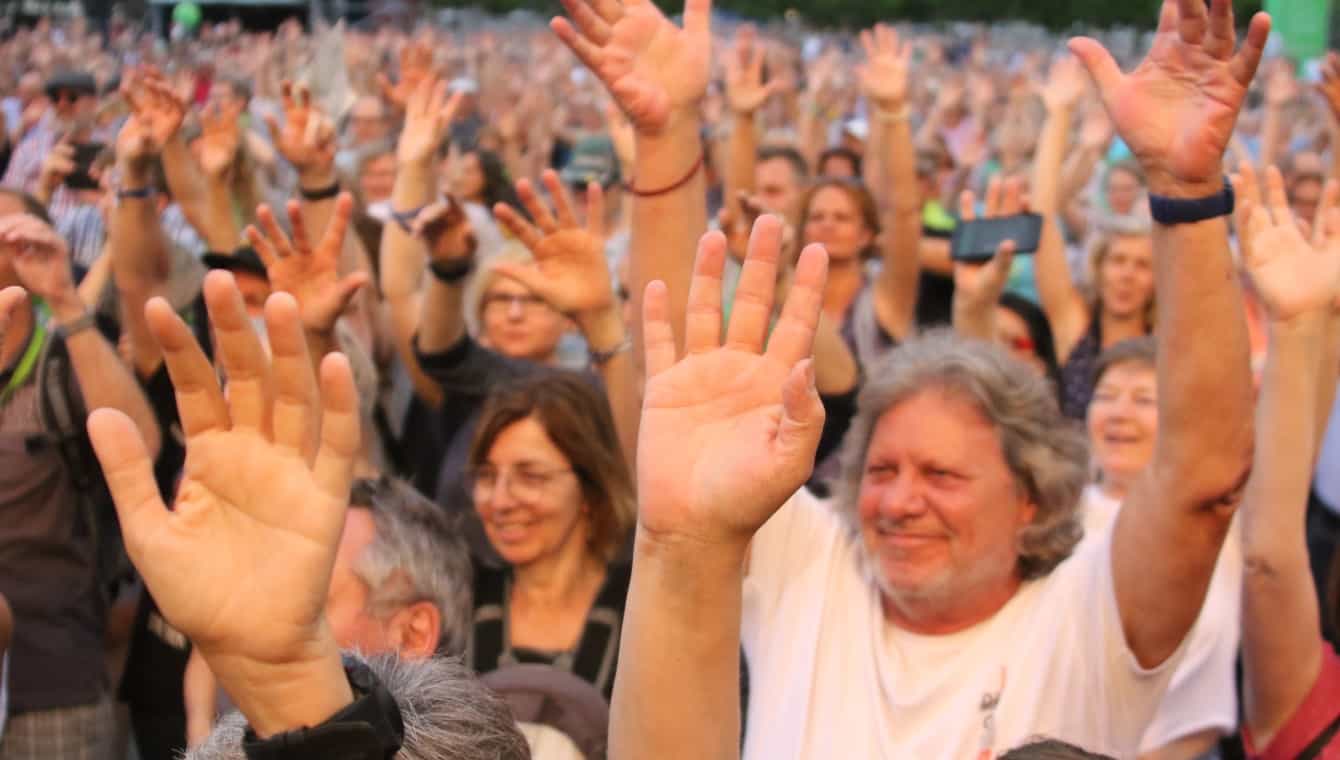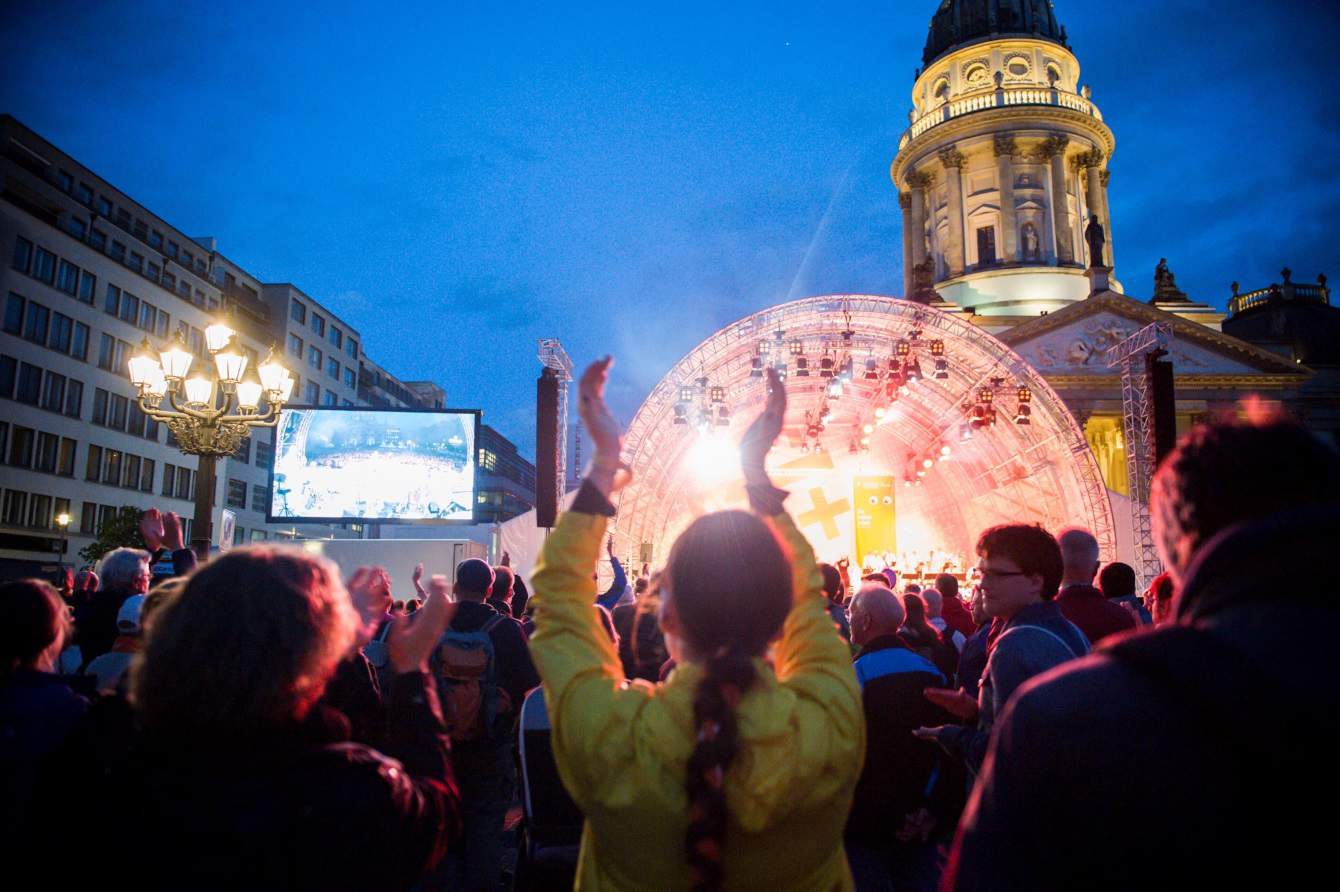Log in to your "My Kirchentag" account now!
To buy a ticket or edit your data, you must first log in to your My Kirchentag account.
To buy a ticket or edit your data, you must first log in to your My Kirchentag account.
Weitere Informationen über die Verwendung von Cookies finden Sie auf unserer Seite Datenschutz.
Technisch notwendige Cookies ermöglichen grundlegende Funktionen und sind für die einwandfreie Funktion der Website erforderlich.
Um unser Angebot und unsere Webseite weiter zu verbessern, erfassen wir Daten für Statistiken und anonymisierte Analysen. Mithilfe dieser Mechanismen können wir beispielsweise die Besucherzahlen und den Effekt bestimmter Seiten unseres Web-Auftritts ermitteln und unsere Inhalte optimieren.
Herzlichen Dank, dass Sie unsere Seite www.kirchentag.de besuchen möchten.
Leider arbeiten Sie mit einer veralteten Version des Webbrowsers, die nicht mehr aktualisiert wird.
Deshalb sind nicht alle Funktionen dieser Webseite momentan für Sie nutzbar.
Um die Webseite gut zu sehen, laden Sie bitte einen der aktuellen und kostenlosen Browser herunter, beispielweise:
Kirchentag is a vibrant gathering, encompassing over 1,500 events within five days, drawing in 100,000 full-time visitors and engaging 30,000 active contributors. However, it represents much more than mere statistics.

Attracting over 100,000 participants from around the globe, Kirchentag brings together people from diverse backgrounds, including many under the age of 30. Student groups and youth organizations actively participate, with many volunteering as guides or assisting with accommodations and event organization. Approximately half of the attendees are first-time visitors, while the rest are returning for their second, third, or fourth experience.

Kirchentag offers a plethora of experiences for thousands of attendees, immersing them in the life of the host city. From performances by emerging artists to appearances by prominent figures in politics, science, art, and business, there's something for everyone. Attendees can start their day with a Techno-mass, followed by meditation, and later enjoy classical and rock concerts, along with panel discussions featuring leading politicians. Amidst it all, there's ample time to relax and rejuvenate in the city's green spaces.

As a grassroots movement, Kirchentag is shaped by its participants, who contribute ideas for various programme components. Whether it's setting up a stall in the market of opportunities or showcasing talents in instrumental, vocal, or theatrical performances, attendees play an active role in shaping the event. This inclusivity ensures that each Kirchentag becomes a celebration for all, regardless of nationality or religious affiliation, despite its official Protestant designation.
Originating in 1949 alongside the establishment of the German Federal Republic, Kirchentag was founded as a movement by Reinold von Thadden-Trieglaff and his associates in Hanover. Emphasizing independence from the institutional Church and a commitment to Christian faith intertwined with societal responsibility, it emerged as an open forum advocating for democracy, human rights, ecumenism, and the fight against discrimination.
Despite the challenges posed by a divided Germany, Kirchentag remained steadfast until 1961, even organizing an event in the divided city of Berlin shortly before the construction of the Berlin Wall. In the ensuing years, while formal Kirchentags were not permitted in the former GDR, courageous Christians in East Germany initiated smaller local gatherings to express their faith publicly. However, the ties between the two movements endured, and following the reunification in 1989, the Kirchentag movements in East and West merged once more.
Throughout its history, the German Protestant Kirchentag has sparked numerous initiatives and discussions, including dialogue between Jews and Christians, the introduction of new forms of worship, and conversations on peace and environmentalism, shaping Germany's societal discourse for decades.